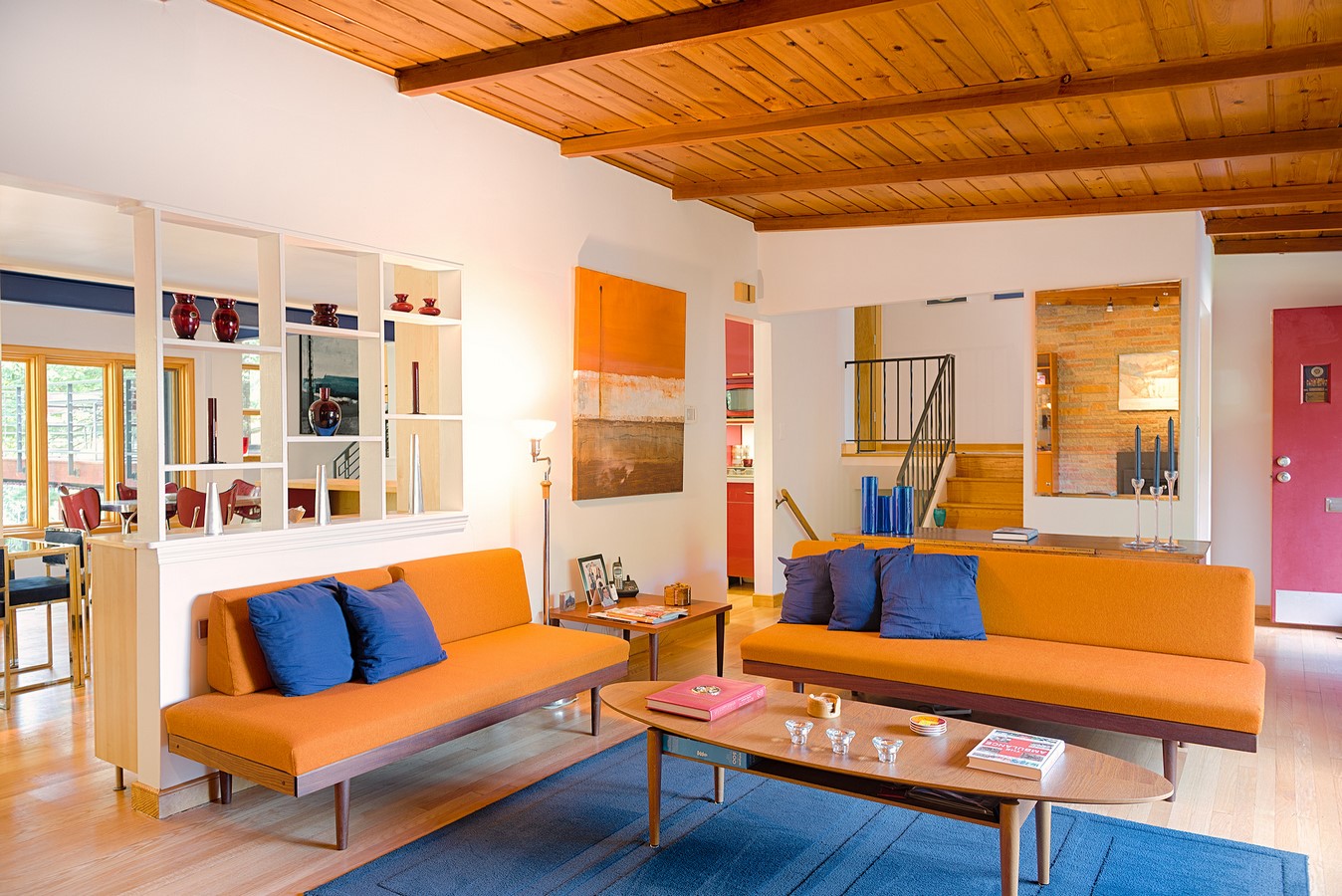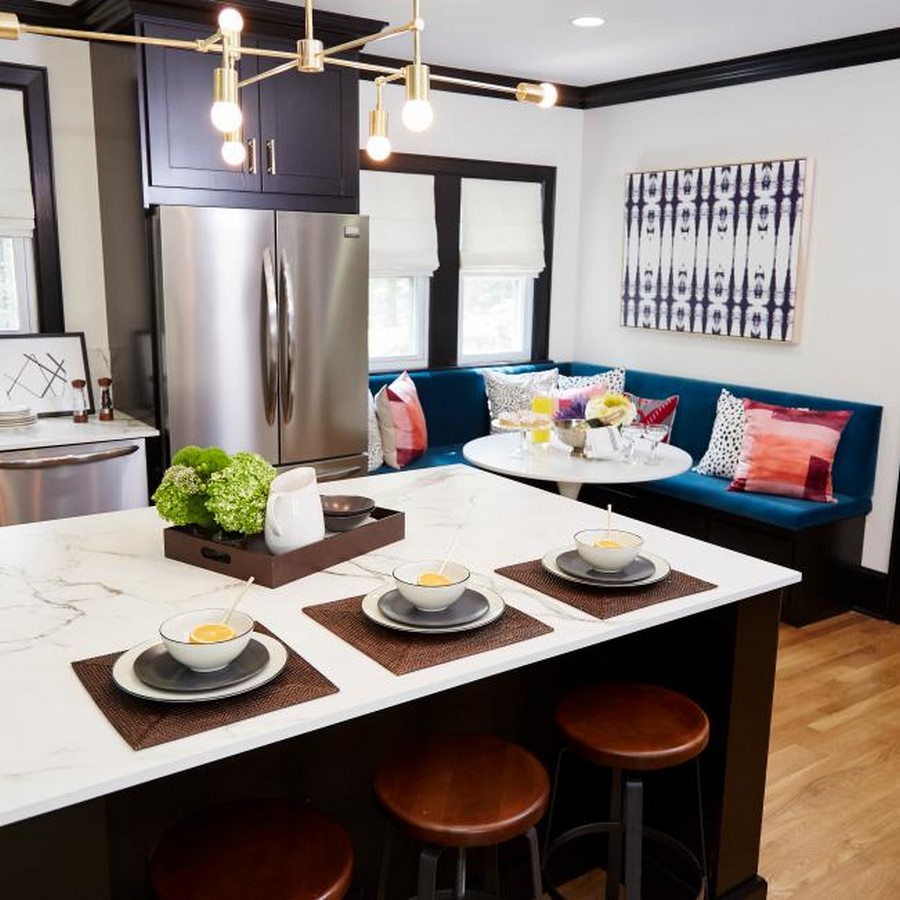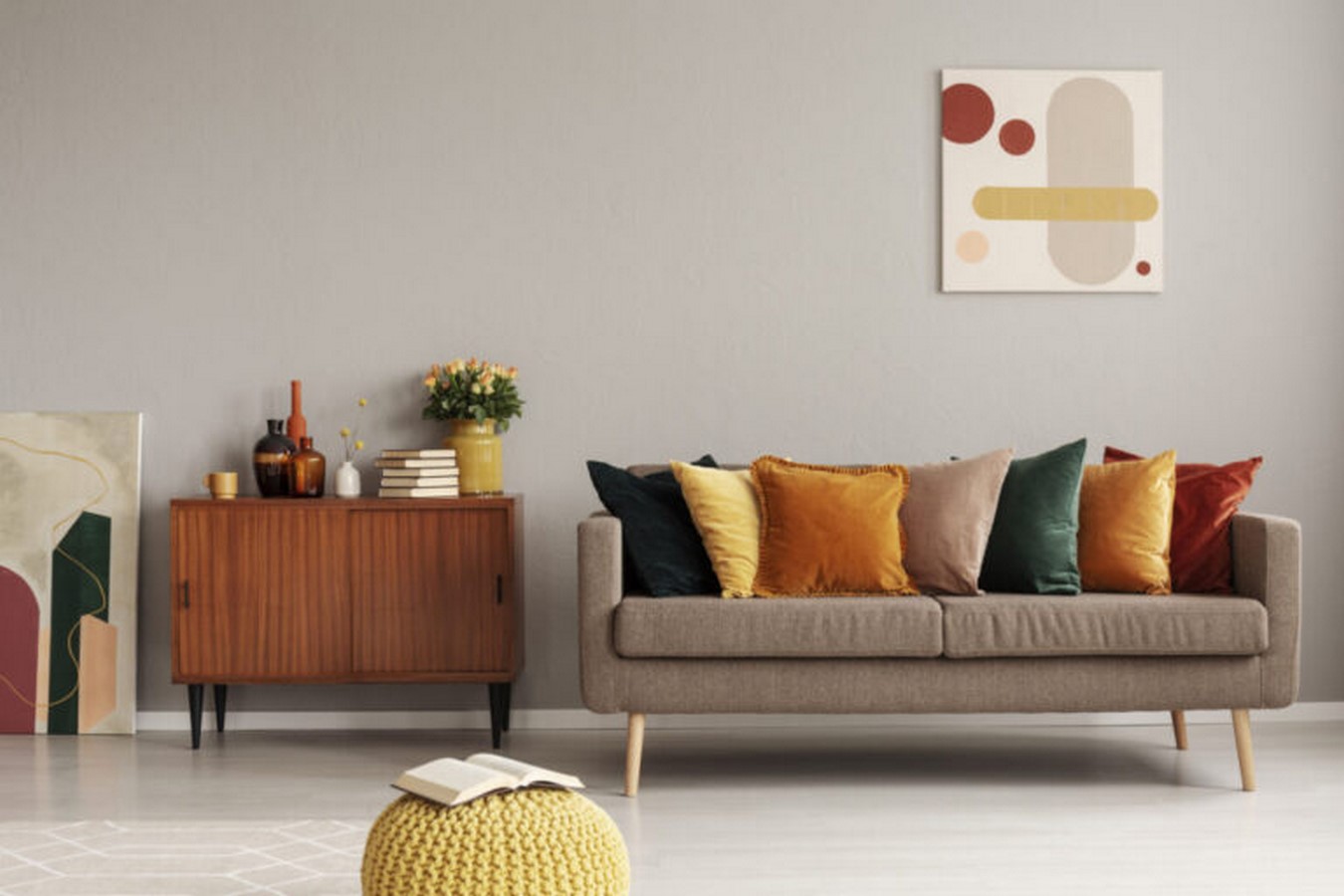
30 Examples of split complementary color scheme in Interiors RTF
Split Complementary_©www.pinterest.com. Against a yellow wall, the blue and the red-orange create the perfect combination without disturbing the room. 24. Split Complementary_©Camilla Molders Design. The blue-green wall helps the red to stand out while the yellow quietly supports the other two colours without creating conflict. 25.

A funky double complementary colour scheme featuring red and green plus
A split-complementary color scheme is known to be a variation of a complementary color scheme. But rather than being a mixture of two colors, split-complementary colors contain a combination of three colors. In order to get a split-complementary color, you have to mix together one primary color and two colors adjacent to its complement.

30 Examples of split complementary color scheme in Interiors
A Split Complementary Colour Scheme is a color scheme for interior design that is created by selecting one colour from the colour wheel and then using one colour from either side of its complementary colour. This creates a more pleasing colour scheme than a true complementary as it still has a strong visual contrast but not as profound.

30 Examples of split complementary color scheme in Interiors
Strictly speaking, a split complementary scheme is a little different. Instead of using two colors, it uses three. Split complementary schemes use one color, plus two colors on either side of its complement. Interior design is, of course, not as cut and dry as a color wheel. You'll see this demonstrated in the example photos.

5 Complementary scheme Living rooms! The Design Spectre Room colors
Split complimentary colors are an excellent option because they allow your room to incorporate multiple colors while still blending nicely with one another. Whether you choose to incorporate the various colors by using an accent wall, or by including accessories, there are a lot of ways to include complimentary colors.

Split Complementary The yelloworange walls, violet drapes and blur
So, let's explore the 12 split-complementary color schemes in fabrics! Red, Yellow-green, Blue-green. Red, Yellow-green, Blue-green, a photo by jenib320 on Flickr. Red, Yellow-green, Green-blue, a photo by jenib320 on Flickr. Red's complement is Green, the two colors on either side of Green are Yellow-green and Blue-green.

30 Examples of split complementary color scheme in Interiors
What is Split complementary color scheme? Split complementary color scheme is a variation of the complementary color scheme where the main color is combined with the two colors adjacent to its complement color which is excluded, for example yellow and green + red.

This split complementary room consists of blue, yelloworange, and red
Split Complementary_©Arro Home and We Are Scout. The deep blue and green compliment each other while the red-orange add a pop of colour to the neutrality. 13. Split Complementary_©atproperties. The orange sofa chairs are the highlight of the room. They create a playful and joyous mood in the living room among the otherwise neutral shades.

12 Impressive Split Complementary Room Photos Living room color
Complementary colors always lay on the opposite sides of each other. For example, take red, of which the complementary color is green. Therefore, this color scheme consists of a single primary color and another single secondary color. When using these colors in a design, they can create a nice contrast in color, making each other stand out more.

30 Examples of split complementary color scheme in Interiors RTF
The Split Complementary Color Scheme is created by selecting one color from the color wheel, then use one color either side of its complementary color. This often provides a more pleasing color scheme than a true complementary as it is still a strong contrast but not as intense.

complementary colours interior design Off 66
A split complementary scheme involves the use of three colors. Start with one color, find its complement and then use the two colors on either side of it. For example, the complement of blue-green is red-orange and the split complement of blue-green would be red and orange.

This room is because of the yellow green
Split complementary colors are suitable for wall painting, furniture and upholstery, and decor. Use the dominant color on the room's focal point. The base color suits larger areas such as walls, furniture, or flooring. Incorporate accent colors through accessories, artwork, textiles, or architectural details like trim or moldings.

Pin on DIY Home & Apartment Decor
A complementary or contrasting colour scheme which uses the two colours purple and yellow which are located directly opposite each other on the colour wheel, contrasting. Save Photo DIAZ - Residence 1954 Split Level Addition and Renovation WMDesign Matt Cowan

30 Examples of split complementary color scheme in Interiors
Complementary colors: pairs of colors that are positioned on opposite ends of the color wheel. Split-complementary colors: the simple but effective color scheme we'll talk about in today's article. Analogous colors: three hues, all positioned next to each other on the color wheel. Triadic colors: three colors evenly spaced on the color wheel.

This is a complementary bedroom with a color scheme of bright orange
Describing Split Complementary Colors. Learning the basic concepts of color theory is a tool that many designers will tell you that you will need to know about color pairing. It is an extremely logical concept and it teaches you how certain colors paired together positively complement each other, which in turn creates a positive feeling for the onlooker.

Create an OffCenter Gallery Wall Ikea living room, Split
Senate Bill (SB) 9 (Atkins), also known as the California Housing Opportunity and More Efficiency (HOME) Act, was signed into law on September 16, 2021, and effective January 1, 2022. The law codified in California Government Code Sections 65852.21 and 66411.7 allows property owners within a single-family residential zone to build two units and.